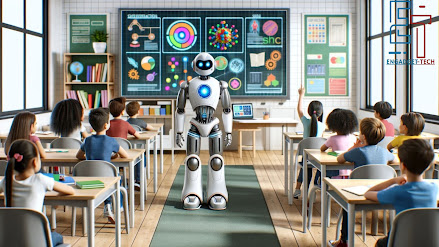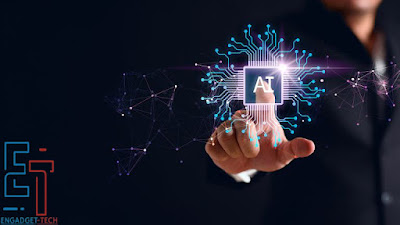The Karachi School Introduces Pakistan's first AI Teacher
A Revolutionary Step in Education:
A school in Karachi has unveiled
the country's first-ever Artificial Intelligence (AI) teacher. As in how this
is a groundbreaking move for Pakistan's education sector, such an innovative
step is a giant leap forward for modernizing the educational system, thereby
utilizing the power of technology to enhance learning. Being seen as a
fast-byrace to digitalization, the current scenario in Pakistan brings AI into
classrooms to offer an interactive, efficient, and personalized learning
experience for students.

The AI teacher in Karachi relies
on the latest NLP and machine learning technologies. It can understand and
react immediately to students, giving answers, guiding them through exercises,
and explaining when required. The AI teacher uses speech recognition to
interact with the students to make the experience seem more natural and
intuitive.
The AI teacher can be asked
questions similar to what a human teacher is asked and will provide students
with detailed explanations. It can grade assignments, provide additional
resources that might be needed, and track each student's progress over time. It
even learns from its interactions with the students, improving its responses
and becoming more efficient at giving the right help.
AI and Human Teachers:
The introduction of AI in
classrooms is a revolutionary step, and the very first step towards this should
address the replacement of human teachers. This is not the role of AI teachers;
instead, it would complement the human educator. Human teachers must be well
maintained to foster emotional intelligence, mentorship, and to encounter
complicated interpersonal dynamics, which AI cannot replace.

To this end, AI will augment
teachers in their endeavors, and not replace them. It will handle most
administrative clerical work, like grading, and giving instant feedback, which
would free up their time for more creative and strategic workings of education.
This is where teachers would engage with the students on an altogether
different level, using the intelligence behind AI as an aid to improve the
overall output of Education.
Benefits of AI Teachers:
1) Personalized Learning:
AI can tailor lessons to
individual students' needs and learning styles.
2) Scalability:
AI allows education to reach
large numbers of students, even in remote areas.
3) Real-Time Feedback:
Students receive instant guidance
and support, improving learning outcomes.
4) Cost-Effective:
AI reduces the need for human
teachers in certain subjects, saving resources.
5) Data-Driven Insights:
Tracks progress and identifies
areas for improvement.
Disadvantages of AI Teachers:
1) Lack of Emotional
Intelligence:
AI has no replacement for human
instructors and emotional support.
2) Technological Limitations:
AI may not interpret complex,
creative ideas or indeed the complexity of some situations.
3) Dependence on Technology:
Overdependence on AI will impede
critical thinking as well as human relations.
The Road Ahead: Future
Possibilities
The First AI teacher from
Pakistan is an introduction, but changes will be in store for education with
advances in technology and the increasing involvement of AI. Advanced features
of future AI could be virtual classrooms, immersive learning through Augmented
Reality/ Virtual Reality (AR/VR), and AI-driven career counseling.










0 Comments